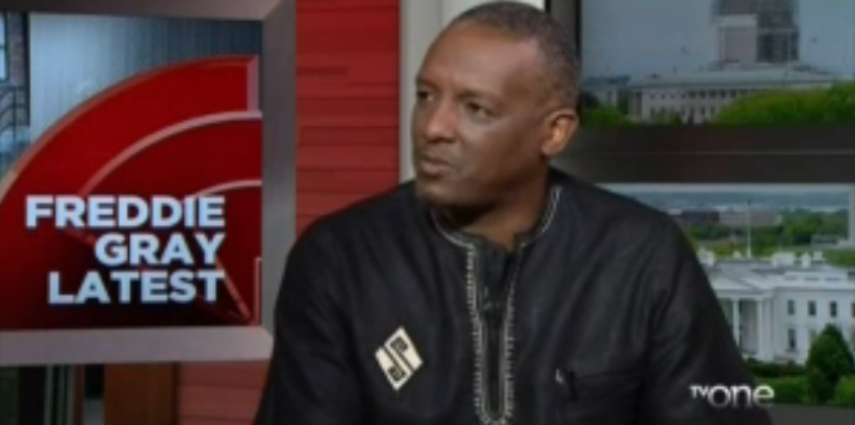Dr. Greg Carr, Chair of the Afro-American Studies Department at Howard University, joined guest host Ray Baker to discuss the historical significance and share some much-needed perspective on the Baltimore Uprising on NewsOne Now.
Carr explained the situation in Baltimore is unique in that it is happening in real-time, but “in the larger sense historically, it’s not unique at all. It’s pretty much business as usual.”
“Violence by the state against the oppressed is consistent with the police doing what they do — they protect property first and foremost and in terms of anti-Black violence, that too is not new.”
When asked about the role violence and poverty has played in the narrative coming out of Baltimore, Dr. Carr said, “All poor people have is their dignity.”
“In the case of Baltimore, when you touch somebody’s dignity, all they have left — they can identify what you value. This country values property.”
Later in the segment, Carr says, “The history of this country is violence and often you don’t make a lot of progress by pleading for your humanity, you make progress by toughing the thing people hold dear, saying, ‘there is going to be a price to pay if we do not make progress.’”
Carr defined violence and the use of violence in different ways to make it clear that a group of people are serious about making progress.
“There is a weapon that we have used, we saw it used in Montgomery in 1954 and ’55. We saw it used since then — the boycott. Some people might call the boycott economic violence. John Crawford right here on the National Mall at a march after his son was killed in a Wal-Mart said ‘I’m not buying anything at a Wal-Mart anymore.’”
That might be considered an act of economic violence — you have not destroyed any property — you in fact told them ‘keep that property.’ That has been arguably the most effective tool that Black people have had.”
Dr. Carr continued posing the following hypothetical proposition to those demanding change and those withholding change, “Perhaps we should withdraw our monetary support, our economic support for certain ventures until changes are made.”
Near the end of Baker and Carr’s conversation, the Chair of Afro-American Studies at Howard University made a very profound statement referencing the #BlackLivesMatter hashtag saying, “The history of this country teaches us that Black death matters more.”
“Once you cross that line of death, particularly with young women and young men, which we’ve seen this spate of violence — what you see is our community respond differently — we draw the line and say that’s it, we won’t take this anymore.”
Watch NewsOne Now guest host Ray Baker and Greg Carr discuss the Baltimore Uprising through a historical lens with Dr. Carr’s unique perspective of the events that have led the city of Baltimore and the nation to this point in time in history above.

